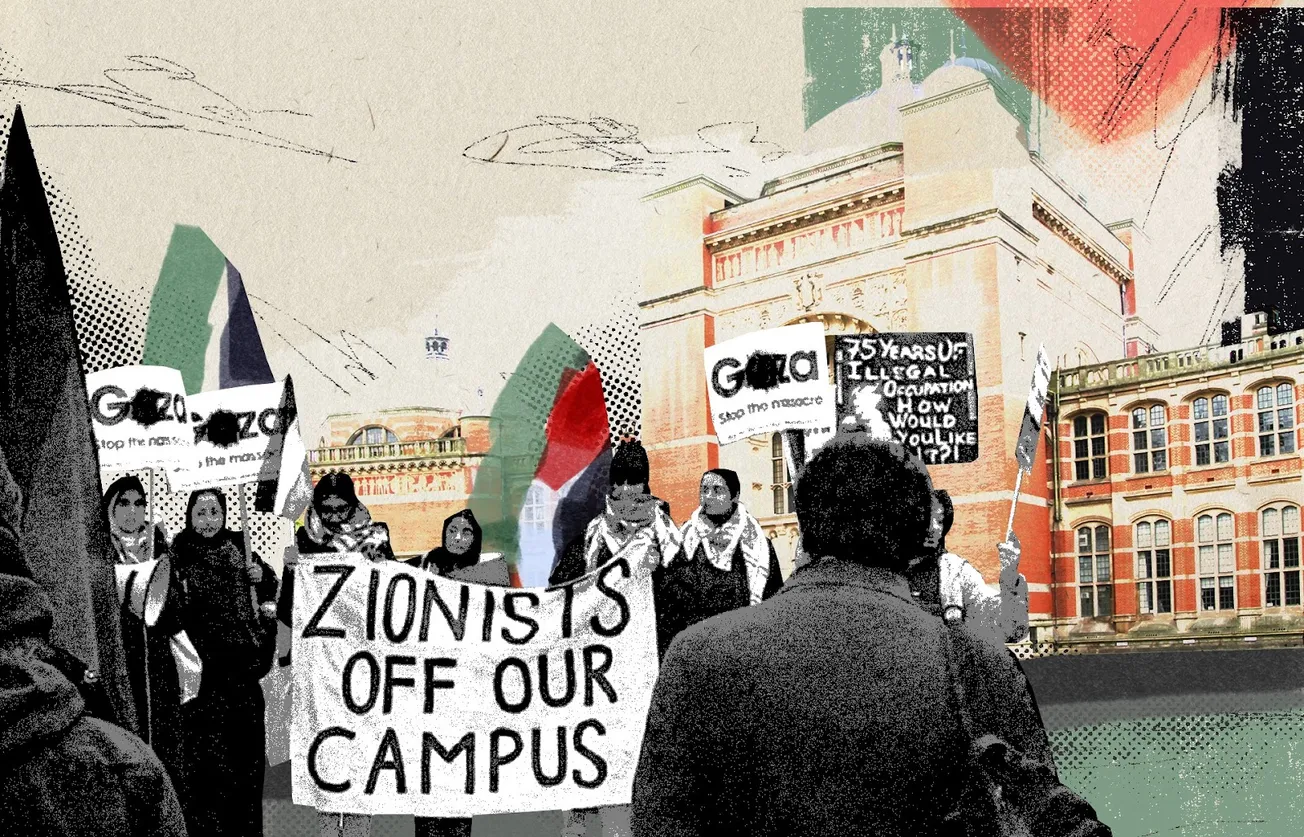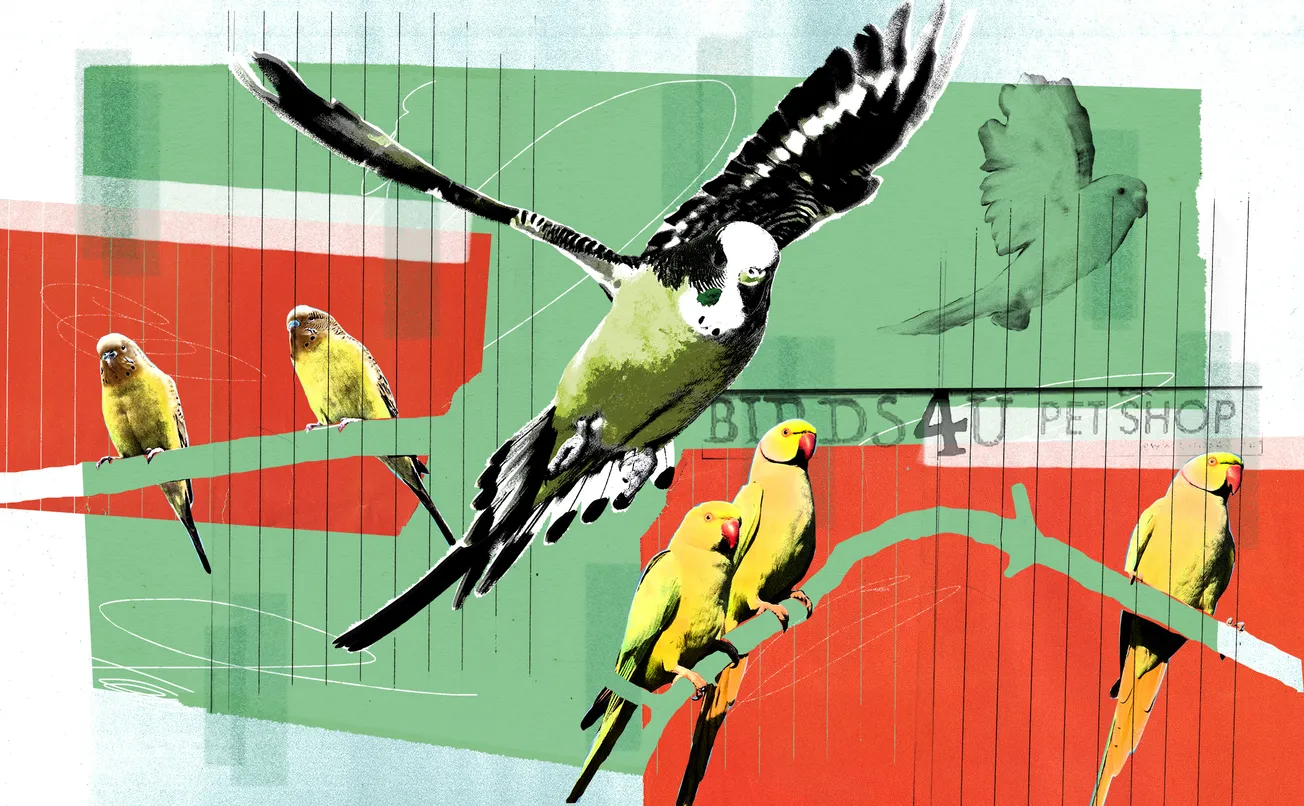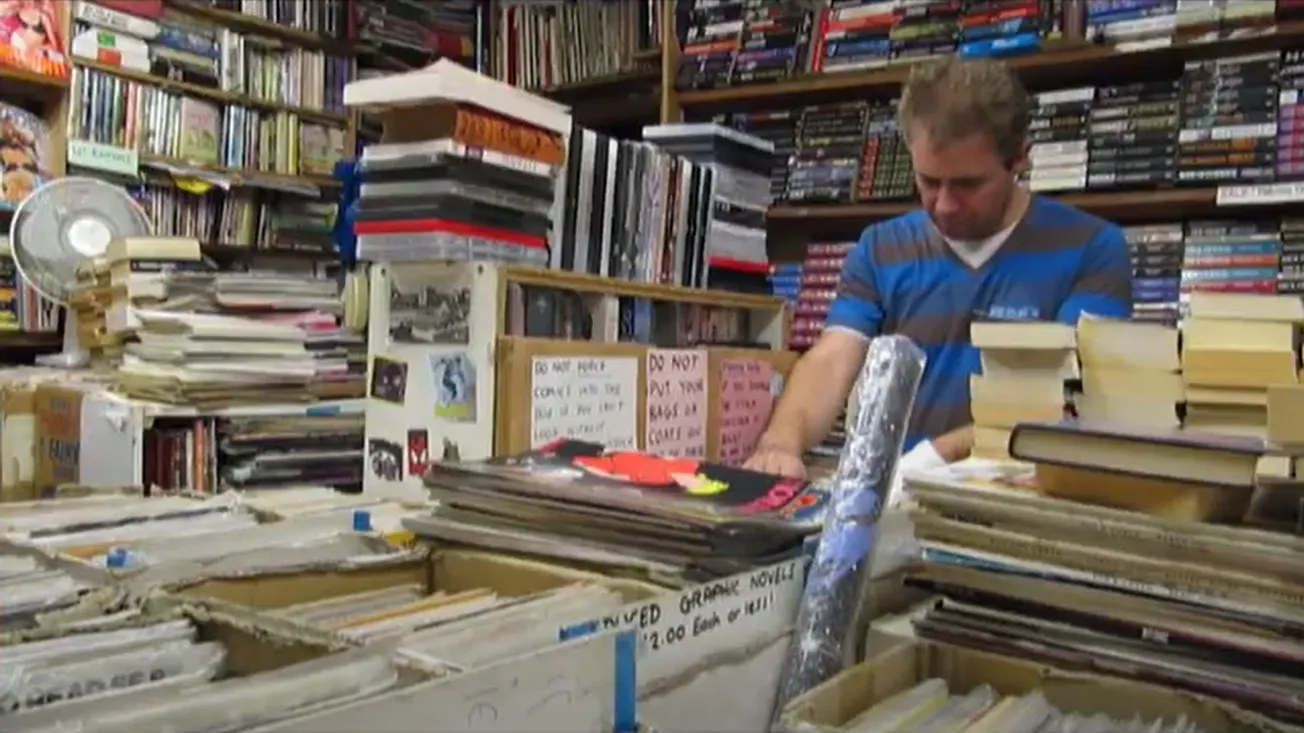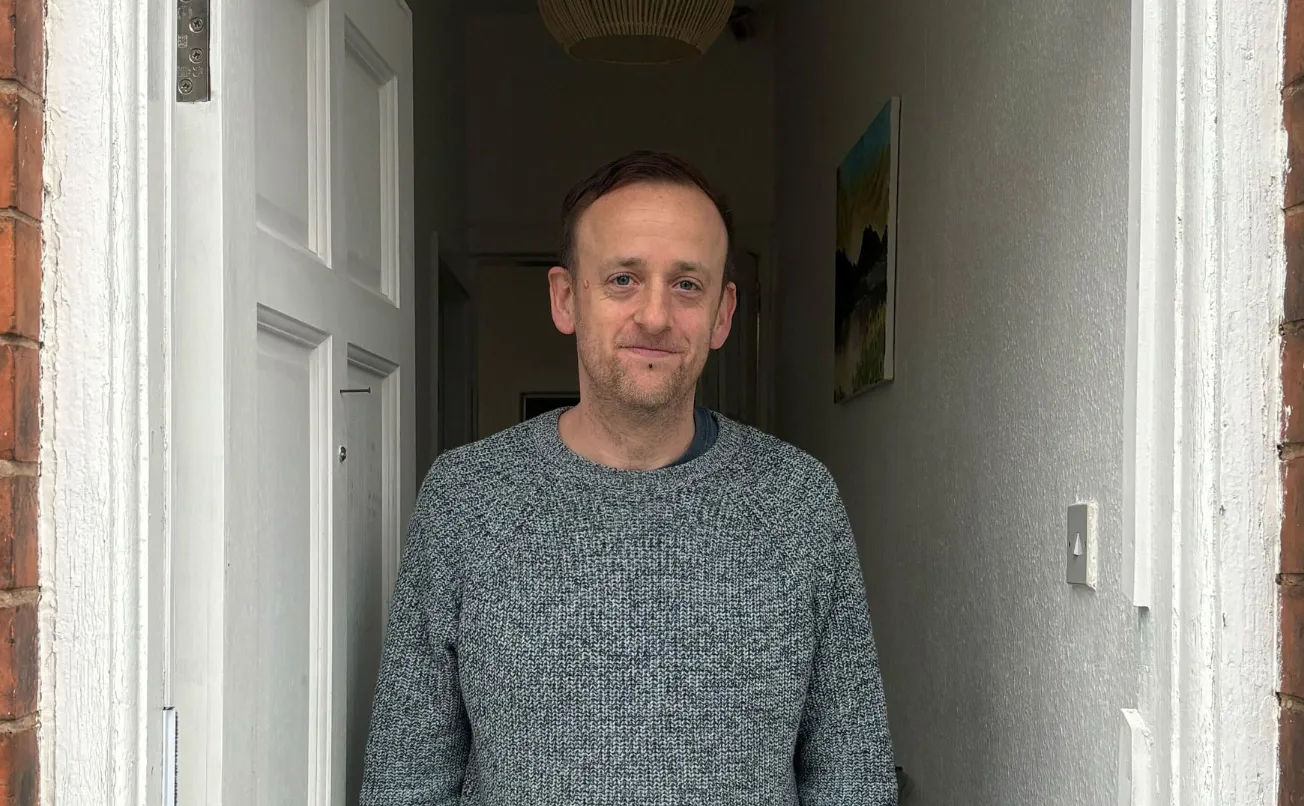Dear readers — two weeks ago, the University of Birmingham made national headlines. A protest held by pro-Palestine students — featuring a banner reading “Zionists off our campus” and alarming allegations of students chanting “Death to Zionists” — was picked up by the Daily Telegraph and prompted fury online.
Over the past week, we’ve spoken to students and university staff, including people who were involved in that protest. Unsurprisingly, versions of exactly what happened at the protest differ markedly. But it’s notable that we haven’t spoken to anyone who heard the “Death to Zionists” chant, which is said to be the subject of a police investigation.
What is clear from our conversations is that the mood on campus is worsening. Some students say they are genuinely fearful of their safety and others have lost friendships over disagreements on the war in Gaza. One student even told us he took to wearing a mask in the wake of the Hamas attack on 7 October “to avoid abuse and physical violence”.
Amidst the tension, fact and fiction have often become blurred and there are some wild claims circulating. One student suggested to us that a speaking event held by a Jewish advocacy organisation wasn’t real and might be some kind of secret signal for Zionists students to gather. There are even rumours that influence is being wielded behind the scenes by the university’s popular skiing club.
Picking apart a contentious story like this isn’t an easy job, but we think that a big part of our role is to devote proper reporting time to tricky subjects in order to give a more nuanced picture than the national media often does. If you’d like to read the story, you will need to be a member of The Dispatch — join up today to read this and all of our members-only work.
Brum in Brief
🪩SNOBS has revealed the opening date of its new Broad Street location. The doors to the legendary nightclub will open on Wednesday 13 March on ‘the golden mile’. The new venue will be kitted out with up-to-date electronics and lighting, including 102 huge LED light boxes on the ceilings, plus the iconic 400 Snobs faces on the walls. Owner Wayne Tracey said the move “will be a major landmark in the club’s history, making it Birmingham’s most modern and most popular dance venue.”
🗣️Brummie actor Adil Ray has spoken out against GB News investor Sir Paul Marshall following an investigation that found he has been engaging with extremist content online. “As one of a few British Muslims in the media, tonight feels significant” he posted on X/Twitter. “One of the media’s biggest co-owners has continually liked some of the most Islamophobic posts I have ever read.” The probe was conducted by Hope Not Hate, the organisation that exposes far-right extremism, with The News Agents podcast.
🙅No confidence in the Commons: Conservative MP for Northfield, Gary Sambrook, has joined calls for Commons speaker, Lindsay Hoyle, to step down following Wednesday’s row in parliament. At the time of writing, 67 Tory and Scottish National Party (SNP) MPs have expressed no confidence in Hoyle since he selected a Labour amendment for consideration in a debate on Gaza. Why the commotion?:
- The SNP used their opposition day — when a non-government party chooses a subject for discussion — to call for an immediate ceasefire in Gaza. Convention dictates one amendment can be made, usually by the ruling party.
- Hoyle went against advice to allow both a Tory and Labour amendment, helping Sir Keir Starmer avoid a rebellion in his party. Hoyle, who is a Labour MP but as speaker is meant to be impartial, has since said he regrets the decision and apologised.
🎭 Alex Claridge, chef and West Midlands Night Time Economy Advisor, has added his voice to the dismay over council funding cuts announced on Monday. He said: “We appear fast-tracked to a Dickensian existence” of inadequate street lighting, overflowing bins, and decimated children’s services. He continued:
Our cultural and hospitality economy is, simply put, exhausted. Wave after wave of challenge and stress. We have betrayed our young talent. Who is going to feed their ambition and allow them to bear witness to Brummie brilliance?
Broken friendships, unproven claims and a police investigation: The war in Gaza divides students at the University of Birmingham
By Jack Walton
Within 48 hours, it had made the national press. The Telegraph and the Jewish Chronicle were reporting that students at the University of Birmingham had chanted “Death to Zionists” during a pro-Palestine protest. By then, it had already spread across social media, with students receiving condemnation from figures including the historian Sir Simon Schama. “Imagine being a Jewish student. Imagine nobody standing up against these people,” tweeted the Jewish Chronicle’s outspoken editor Jake Wallis Simons.
West Midlands Police are now investigating “two racially-aggravated public order offences” from the events of 7 February. For that reason, the university won’t be drawn on the specifics, instead telling us they are assisting the police in their enquiries and have been meeting “a range of student representatives”, including the University’s Jewish Society and Islamic Society, to discuss the situation.
As well as the alleged chant, a banner — held by the student group protesting on 7 February — reading “Zionists off our campus” sparked a furious response online. In the two weeks since, The Dispatch has spoken to people on both sides of the debate — including a group of Jewish students who independently keep tabs on pro-Palestine protests, and the protestors themselves. Both sides agree on one thing: the situation is becoming more and more febrile.

We’ve been told that between 40 and 60 students attended the protest, which was the second of two pro-Palestine demonstrations that day. The first was organised by the Birmingham University and College Union and was authorised by the university. The second was advertised by an amalgamation of pro-Palestine groups, including Youth Front for Palestine and Rise up for Palestine. It was a student walk-out in opposition to a speaker called Noah Shufutinsky, who had come to the Birmingham as a representative of the nonprofit pro-Israel advocacy organisation StandWithUs. The university pointed out that this event did not take place on campus and was not organised by any student society.
Online flyers shared by those pro-Palestine groups prior to the event accused StandWithUs of “defend[ing] and promot[ing] genocide”, as well as producing “racist caricatures of Palestinians and Muslims”. In the end, the two protests — the union one and the student one — overlapped. Campus “security personnel” were present throughout.
After the Jewish Chronicle and then the Telegraph picked up on the story, the university released a statement saying that while UoB is committed to “freedom of speech”, the second, student-led protest was “not approved by the University” and the organisers “did not seek permission for the event”.
Nobody that we have spoken to heard the alleged “death to Zionists” chant — including three Jewish students who were present. Certain members of the pro-Palestine protest categorically deny that it occurred, with one describing it as “an obvious smear” and “the sort of propagandist nonsense we’ve become used to”.
However, one Jewish student who attended — but kept his distance — told us the phrase “Israelis can burn in hell” was shouted at him by an individual (male, early 20s, wearing a green beanie) attending the protest. He told us the remark was unprovoked and went unchallenged. The student didn’t report the matter straight away, he says, but has filed a report to the university regarding the claim in the past week. He has shown us messages sent to a group chat an hour or so after the protest, describing the remarks. “I got told to burn in hell,” one reads.
It’s one of several concerning incidents described to us by Jewish students at the university. Another anecdote involved a student in a first-year accommodation block, Mason Hall, who is said to have had seafood (which is non-Kosher) left outside the door of his flat alongside a Palestine flag. This incident was described second-hand by three separate students, who said the student would not be able to speak about it himself. The university told us no incident of this kind had been reported.
One Jewish student told us that in the days after Hamas’ October 7 attack on Israel, he didn’t feel safe to leave his university accommodation. When he did start going out again, he wore a face mask out of fear for his personal safety. When I ask him whether he felt genuinely threatened — in the sense that he believed he was under imminent threat of intimidation or attack — he says that at that point, he did. “[It was] to avoid abuse and physical violence,” he says. “There are people who hold extreme views.” He no longer believes there is a live threat — more of an “underbelly”.

“I have lost friends at the end of the day,” Dan, one of the Jewish students, tells me. “There was one person in particular I used to be good friends with and I just completely disagreed with their views and I didn’t want to hear it…I removed myself from that friendship”.
Unsurprisingly, those attending the protest two weeks ago have a very different account of events on campus. Joseph Abdel-Salam, the president of the newly-reformed UoB Friends of Palestine Society, says he believes the claims about the chanting are “a smokescreen”, adding that “indoctrinated” pro-Zionist students make false reports because they know they will be taken seriously. “It’s a very ridiculous concoction,” he says about the “Death to Zionists” chant claim. “At least choose something that crowds might actually say.”
To Abdel-Salam, the victims of this situation are the protesting students whose faces found their way into the national press. One of the photographed students, he says, is an exchange student he once met at a society committee meeting. Their exchange student status means they are less secure, and Abdel-Salam now fears there could be consequences for that student’s degree. As far as we know, the university has not made any threats to any of the students involved regarding their degrees or status at the university.
Both sides in this debate say they feel unjustly persecuted. And as you might expect in a war of words among young people on a university campus, some of the stories circulating are hard to pin down. Abdel-Salam tells me about a Muslim student who was “targeted” by campus security while pamphleting in what he describes as “racial profiling”. Perhaps this happened, but the story is secondhand, and he is unable to put me in contact with the student involved. Other stories I’ve heard while reporting this piece are similarly light on details: symptoms of a factionalised and distrustful climate among students.
Birmingham deserves great journalism. You can help make it happen.
You're halfway there, the rest of the story is behind this paywall. Join the Dispatch for full access to local news that matters, just £8/month.
SubscribeAlready have an account? Sign In







